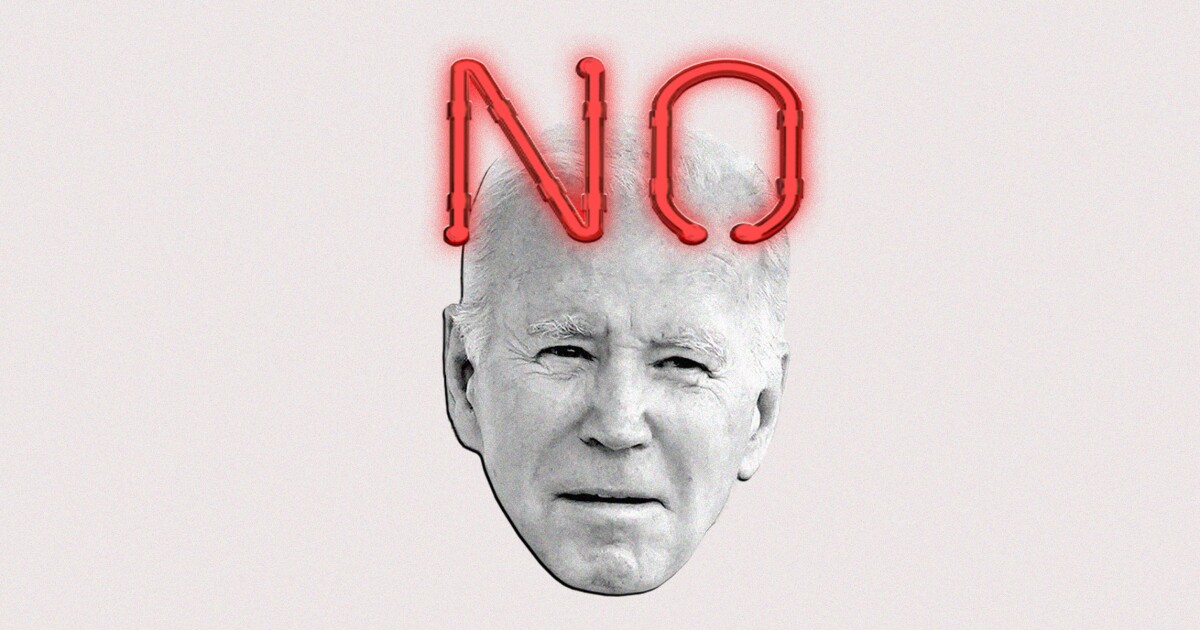

Congressional Republicans aren’t the only ones on Capitol Hill who disagree over President Joe Biden’s “no negotiations” strategy to raising the nation’s borrowing capacity.
Some congressional Democrats are concerned that a White House unwillingness to at least discuss federal spending cuts and other GOP-favored provisions will lead to a protracted standoff that will accelerate default on the nation’s national debt.
MCCARTHY UNVEILS LEGISLATION RAISING DEBT CEILING UNTIL NEXT YEAR
The issue is coming to a head because the Treasury Department has notified Congress that it’s time to again raise the nation’s debt ceiling, now at $31 trillion, to allow more borrowing to pay off the country’s accumulated bills. Treasury said it has started taking “extraordinary measures,” but the money is expected to run out at some point in July.
On April 26, the Republican-majority House passed a broad outline of extending the borrowing limit with accompanying spending cuts while Biden remains adamant there will be no negotiations with the GOP. Biden insists negotiations over federal spending levels should happen during the regular federal budget process, with the end of the current fiscal year fast approaching on Sept. 30.
Senate Majority Leader Chuck Schumer (D-NY) says the House-passed proposal is dead on arrival in the Democratic-majority Senate. But members of the president’s party say the plan, pushed through the House by Speaker Kevin McCarthy (R-CA), should at least be a starting point for talks.
Sen. Joe Manchin (D-WV) was among the first to applaud McCarthy’s plan, urging Biden to break his monthslong refusal to negotiate with the House speaker. Manchin faces a tough 2024 reelection bid if he decides to run because West Virginia in 2020 backed former President Donald Trump over Biden by a whopping 69%-30%.
“Our elected leaders must stop with the political games, work together, and negotiate a compromise. Instead, it has been more than 78 days since President Biden last met with Speaker McCarthy,” Manchin said on April 20, the day McCarthy unveiled his proposal. “This signals a deficiency of leadership, and it must change.”
When asked by the Washington Examiner to respond to Biden’s veto threat on the Republican-passed measure, Manchin’s office referred to his previous comments that Biden must “come to the table” and “negotiate now.”
Other Democrats have similarly weighed in, noting negotiations on the debt ceiling must happen sooner rather than later.
“He should negotiate on the budget. That is the place to negotiate, and they should start those negotiations now,” Sen. Amy Klobuchar (D-MN) told CNN’s State of the Union. “You’ve got to simply make clear: We’re going to avoid default and get this behind us.”
That seems unlikely, though. As McCarthy’s debt ceiling plan began to gel, Biden quickly rejected it. Biden balked at the speaker’s proposals to cut discretionary government spending and roll back portions of the Inflation Reduction Act, a signature domestic achievement enacted in August 2022, which aims to curb inflation by reducing the deficit, lowering prescription drug prices, and investing in domestic energy production while promoting clean energy.
Biden was vice president for President Barack Obama in 2011 when a newly ascendant Republican majority, eager to confront the Democratic president in the White House, refused to raise the debt limit without cuts to federal spending. The government risked a catastrophic default and eventually suffered a devastating credit downgrade, a first in the nation’s history.
In the end, House Republicans could not agree on a deal with the Obama White House. When the August 2011 deadline came to raise the debt ceiling, only an eleventh-hour agreement with Senate Republicans led by Minority Leader Mitch McConnell (R-KY) and some Democrats tasking a “Super Committee” to recommend further federal reductions ensured there would be no debt default.
For the rest of his presidency, Obama refused to negotiate over the debt ceiling, a stance continued by Biden once he entered the White House.
House Republicans, though, are trying to use their debt-ceiling and spending-cuts bill as political leverage. GOP lawmakers are betting the Biden White House will appear intransigent and unreasonable to the public and will blink first. This is what has congressional Democrats such as Manchin and Klobuchar concerned.
McCarthy unveiled his long-awaited debt ceiling bill earlier this month, proposing to raise the debt ceiling over the next year either by $1.5 trillion or until March 31, 2024, whichever comes first. The Limit, Save, Grow Act, passed by the House with a 217-215 vote, seeks to cool inflation and limit government spending by reducing discretionary funds to pre-pandemic levels and would cap budget increases by 1% each year, among other provisions.
CLICK HERE TO READ MORE FROM THE WASHINGTON EXAMINER
Top Democrats in the House have remained mum on Biden’s negotiating stance, or lack thereof. They’re pushing the blame on Republicans, noting former President Donald Trump and Congress raised the nation’s debt limit three times with GOP complaints. House Democratic Caucus Chairman Pete Aguilar sidestepped questions on whether it’s up to Biden to reengage with debt ceiling negotiations, instead pointing to the regular budget process.
“The White House is supportive of us having those discussions in the committee room about budgets and sustainability,” Aguilar said.





